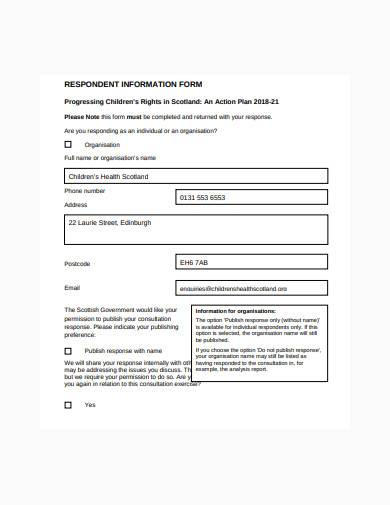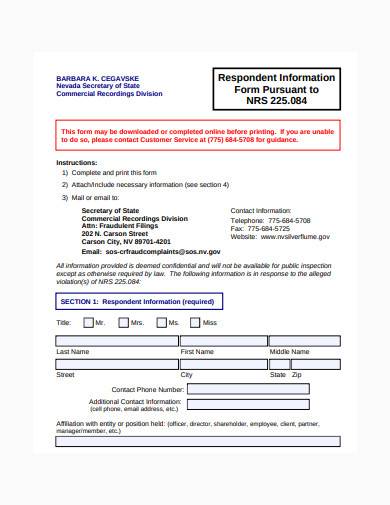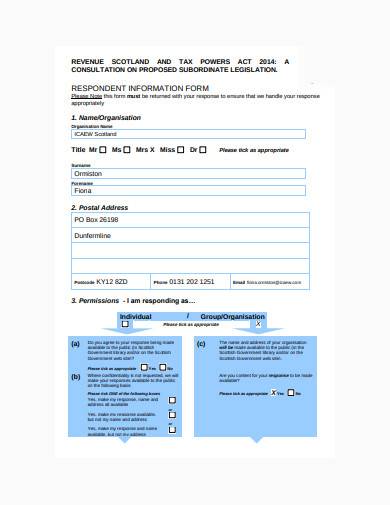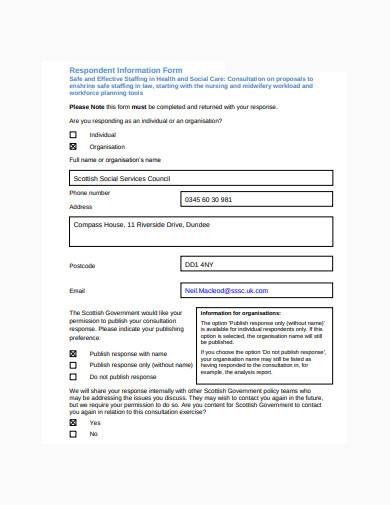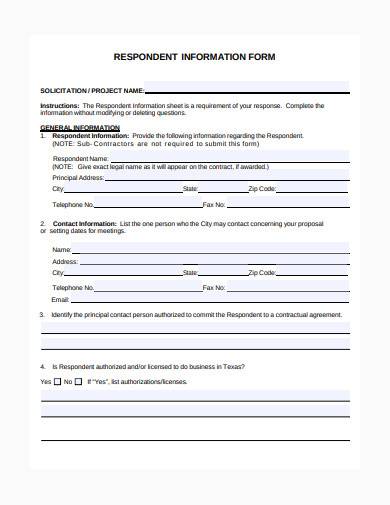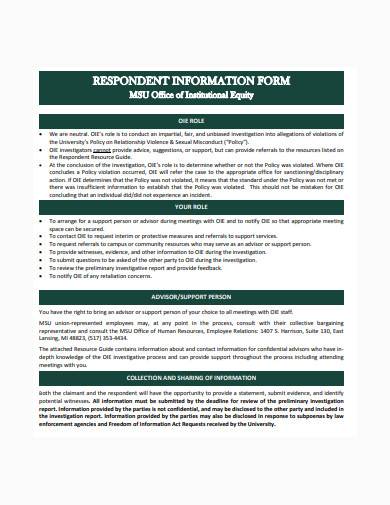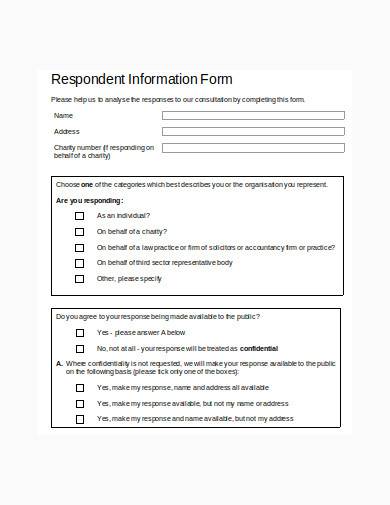In the field of research, a respondent is a person who answers questionnaires and provides information in surveys. In legal proceedings, however, a respondent is the defendant or a person who is accused of committing a crime. It is important to determine the identity of the defendant to summon or invite the right person to court for them to defend themselves from the allegations filed against them. Respondents must fill out a respondent information form where they write information that identifies who they are. But how useful is it in legal proceedings? Let’s find that out.
What Is a Respondent Information Form?
If you have seen sample legal forms before, you’ll know that a respondent information form is one of them. It is important for respondents to complete the form before they present themselves in court for trial since it is a requirement when responding to a court summon. To complete the form, the respondent must provide their complete/full legal name, title, date of birth, age, mailing and physical address, contact details, ethnicity, height, weight, hair color, eye color, etc. Completing a respondent information form is just like filling out a general application form, but for a different purpose. The details gathered are basic information about the identity of the respondent plus other open-ended questions related to the case filed against them. Since the form is a legal document, it is advisable to tell the truth, or else, the respondent will suffer the consequences. The information provided in the form may be used against the respondent if there is a conflict between what they wrote and what they say during the trial.
6+ Respondent Information Form Samples in PDF | DOC
1. Respondent Information Form Sample
2. Respondent Information Form Template
3. Respondent Information Form in PDF
4. Respondent Information Form Example
5. Formal Respondent Information Form Sample
6. Respondent Information Sample
7. Respondent Information Form in DOC
How to Effectively Complete a Respondent Information Form
1. Scan Through the Form First
Check the content of the form so that you’ll know what information you’ll need to put in every item. It will also give you an idea of what answer to provide for specific questions. Do this before you start filling out the form. You can ask about a certain part of the form that you don’t understand or a question you find confusing. It’s like familiarizing the form to ensure that you provide accurate information and avoid errors.
2. Follow Instructions
Instructions to fill out the form are provided either on the top, the bottom, or the back page of the form, so look for it in these places. It is crucial to follow instructions because there could be specific parts of the form that one must answer in a specified manner. This, of course, vary’s per state or locality. What’s done in one state may not be allowed in a different state, and you should take note of that. There are times when instructions are given in each section of the form so you will have a full understanding of what to write or what to do.
3. Write Legibly
If it’s a type of form where you need to write the information by hand, you must write the details as neatly and as legibly as possible. This specific instruction is not only applicable to a respondent information form but to all types of forms, be it legal or not. The judge and other members of the jury must be able to read the information, or it’ll be useless. If possible, write in block letters or use all capital letters.
4. Answer All Questions Honestly
Again, it is a legal form, specifically the type of form used in court proceedings. You should answer questions honestly. Bear in mind that inconsistencies between the information you provide in the form and what you say in court will render your statements doubtful, which will cause you to lose the case. Also, remember that you can go to jail for lying.
5. Avoid Erasures and Alterations
Legal forms should never have erasures and alterations. This will also make the information you wrote on the form less credible. So, be mindful when you fill out the form to avoid any mistakes that can lead to erasures or alterations.
Can you use this form for other purposes?
No, you can’t. A respondent information form is a legal form that is intended only for gathering information about the respondent of a case or lawsuit. However, there is another respondent information form used in surveys and research studies. The form that survey or research respondents used should not be confused with the respondent information form used in legal proceedings.
When does a plaintiff become the respondent?
Both the plaintiff and the defendant can file for a petition or appeal. Here, the respondent is referred to as the party to whom the petition is filed. So if the defendant files a petition for the case, that is when the plaintiff becomes the petition’s respondent.
Who is the respondent in an impeachment trial?
The two sides in the impeachment trial in the United States are the management and the respondent. The respondent here is a civil officer of the government or someone who holds an office in the government. Crimes or offenses that are impeachable include bribery, treason, high crimes, and other misdemeanors. Officers who are subject to impeachment are the President, the Vice President, and all civil Officers of the United States.
Filling out forms is not an entirely new process for us because we’ve been filling out forms after we learned to write. We fill out forms during enrollment, when applying for a job, when going for a doctor’s check-up, when purchasing online, etc. Forms make certain tasks convenient, and the sample forms above do just that. You should check them out!
Related Posts
22+ Sample Acknowledgement of Service Forms
38+ Survey Forms
33 Free Affidavit Forms
15+ Sample Settlement Agreements
7+ Sample Employee Complaint Form Templates
9+ Sample Peer Evaluation Forms
FREE 19+ General Affidavit Samples
55+ Printable Survey Forms
9+ Sample Interview Consent Forms
6+ Sample Sworn Affidavit Forms
Sample Claim Forms
7+ Sample Temporary Custody Forms
7+ Sample 360-Degree Feedback Forms
Statement Form
FREE 30+ Company Profile Samples

